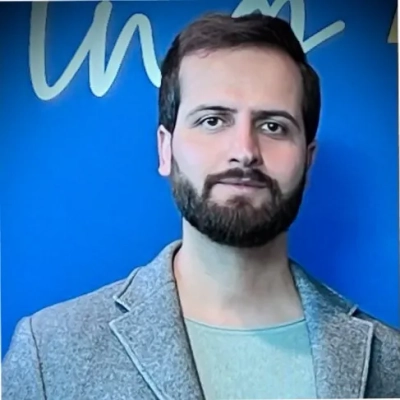Building Community: How Companies Foster Belonging in the Workplace
Creating a genuine sense of community in the workplace has become essential for companies seeking to retain talent in today's competitive environment. Leading workplace culture experts have identified specific practices that successfully foster authentic belonging among employees while boosting productivity. The following examination of community-building strategies reveals how organizations are implementing everything from transparent team roundtables to mentor circles that encourage vulnerability and connection.
- Simple Friday Talks Create Genuine Human Connection
- Remote Connections Beyond Slack Foster Team Energy
- Connection Fridays Establish Trust Through Shared Vulnerability
- Employee-Led Interest Groups Cut Across Departmental Silos
- Case Consultations Normalize Professional Vulnerability
- Monthly Cooking Sessions Keep Team Spirits High
- Community Volunteering Transforms Professional Team Dynamics
- Transparent Team Roundtables Build Authentic Connections
- Accountability Buddy System Builds Structural Trust
- Good News Board Celebrates Life Beyond Work
- Low-Pressure Social Events Break Down Workplace Barriers
- Monthly Team Check-ins Create Family-Like Trust
- No Shop Talk Trips Spawn Office Inside Jokes
- Monthly Cafe Catch-ups Balance Remote Work Life
- Optional Non-Work Calls Create Remote Human Connection
- Mentorship Program Helps Engineers Solve Real Problems
- Quarterly Hackathons Give Everyone a Voice
- Monthly Team Breakfasts Connect Field Staff Together
- Cultural Sharing Sessions Transform Office Relationships
- Mentor Circles Encourage Open Project Discussion
- Safe Communication Spaces Promote Mental Well-Being
- Creative Workshops Provide Judgment-Free Bonding Space
- Shared Struggle Sessions Allow Authentic Vulnerability
- Weekly Recognition System Shows What Good Looks
- Daily Standups Build Trust During Critical Situations
Simple Friday Talks Create Genuine Human Connection
I'm going to say something that might raise a few eyebrows. Most team building doesn't build much at all! You can't create belonging with a quiz night and a few slices of pizza.
If that's what it takes to make people feel connected, the culture's already in trouble!
At MTD we do something far simpler. Every Friday the teams down tools for half an hour and just talk. No agenda, no scripts, no pretending it's for engagement. It's simply a space to be people for a bit.
That's where belonging starts. Not from cheesy posters or campaigns, but from actually knowing each other.
I remember one week someone seemed a bit off. Normally that sort of thing slips through the cracks when everyone's busy, but because we'd built that space to actually talk, someone noticed. They checked in quietly and found out this person was struggling with something outside of work. Nothing dramatic, just life doing what life does. But that small moment changed the week for them.
That's what keeps us steady when things get busy. It doesn't matter whether it's a full team or just a few people grabbing time together, the outcome's the same... connection, trust and a culture that actually feels human.

Remote Connections Beyond Slack Foster Team Energy
We treat community like oxygen—it's not a perk, it's survival. Everyone at Prose works remotely, so we go out of our way to make people feel connected beyond Slack threads and project deadlines. We do small, offbeat things: shoutouts for random wins, open "vent channels," and spontaneous team hangouts that have zero agenda. It keeps the vibe light and human. When people actually like each other, they show up with more energy, more honesty, and way less burnout. It's amazing how much better the work gets when people don't feel like they're on an island.

Connection Fridays Establish Trust Through Shared Vulnerability
One of the things I've learned over the years is that a strong sense of belonging doesn't come from team-building events or motivational talks — it comes from genuine connection and shared purpose. When I started Zapiy, we were a small remote team scattered across different time zones. The challenge wasn't just collaboration; it was making sure everyone felt like they were part of something bigger than a Slack channel and a task list.
In those early days, I realized that people didn't just want to work *for* a company — they wanted to grow *with* it. So, we built a culture where every team member could see the direct impact of their work. During our weekly meetings, instead of just reviewing performance metrics, we'd highlight stories — how an automation someone built saved a client hours of manual work, or how a simple process tweak improved the experience for hundreds of users. It created a feedback loop where everyone could feel proud of their contribution, no matter how small.
We also introduced what we call "Connection Fridays." It's one hour every other week where no one talks about deadlines or deliverables. Instead, we share something personal — a recent win, a struggle, a hobby we've picked up. I'll never forget one session where a team member opened up about feeling isolated after moving to a new city, and another immediately offered to check in weekly. That moment reinforced something powerful — vulnerability builds trust faster than any corporate policy ever could.
Creating space for authenticity has done more for our mental well-being than any structured wellness initiative. It's not just about offering resources for mental health; it's about creating an environment where people feel safe enough to be human. When people feel seen and supported, they don't just perform better — they bring their best selves to the table.
What surprised me most was how this sense of community naturally translated into better collaboration, creativity, and retention. When people feel like they belong, they're not just working *at* a company — they're helping build it. That, to me, is the foundation of both a healthy culture and a healthy mind.
Employee-Led Interest Groups Cut Across Departmental Silos
In an era defined by distributed teams and digital fatigue, the line between professional connection and genuine community has become critically blurred. Organizations often mistake scheduled social events for the bonds that truly sustain us. But a sense of belonging, which is a powerful safeguard for mental health, isn't something that can be neatly inserted into a calendar. It requires creating conditions for authentic, low-pressure interaction, recognizing that employees are whole people whose identities extend far beyond their job titles.
Instead of focusing on top-down team-building exercises, we've found more value in enabling connection from the ground up. The most meaningful practice we've adopted is a simple one: we provide a small, no-questions-asked budget and scheduling support for any employee-led interest group. These are not work-related "centers of excellence" but informal clubs built around shared personal passions—from urban gardening and documentary films to classic board games. The only requirement is that the groups are open to anyone in the company, ensuring they cut across the usual departmental silos.
The effect has been profound, though quiet. These spaces allow colleagues to interact without the subtle pressures of hierarchy or performance. A junior analyst and a senior director can simply be two people who enjoy photography, creating a different kind of rapport that carries back into their professional work. It builds a resilient social fabric, woven from shared humanity rather than shared objectives. Ultimately, it's a tangible reminder that a healthy work environment is one where people are given the trust and autonomy to connect on their own terms.

Case Consultations Normalize Professional Vulnerability
We build community by intentionally using our weekly clinical case consultations as a time for shared vulnerability. Instead of merely reviewing treatment plans, we dedicate time to asking how a challenging case affected the clinician personally and what support they need from the group. This turns a routine meeting into a powerful source of psychological safety.
This practice directly combats the professional isolation that is common in healthcare. By creating a structured and safe environment to admit uncertainty or emotional strain, we dismantle the pressure to always have the perfect answer. It normalizes the human side of our work.
The result is a team with exceptionally high trust, where colleagues are more likely to support each other proactively. This sense of belonging reduces burnout and, most importantly, improves our collective ability to care for our patients, as we're all operating from a healthier and more connected baseline.

Monthly Cooking Sessions Keep Team Spirits High
We cook together as a team at SalesMVP Lab once a month. I got the idea from my time on Masterchef Canada. It's nothing formal, just a chance to mess around in the kitchen together. Last month's impromptu taco night was a perfect example, with flour tortillas all over the place and everyone laughing. Finding some low-stakes activity where people can actually be themselves does more for team connection than anything else I've tried.

Community Volunteering Transforms Professional Team Dynamics
Our team was feeling a bit disconnected, so we tried volunteering together to teach seniors basic tech skills. It worked. The quietest person on our team lit up showing a woman how to see photos of her grandkids on a tablet. Suddenly we weren't just developers and marketers anymore. It did more for our team cohesion than any planned activity ever could. Getting people to use their skills outside of work changes things.
Transparent Team Roundtables Build Authentic Connections
We foster a sense of community and belonging at Custom Legal Marketing through our commitment to open, transparent communication via regular team roundtables. These aren't just status meetings. They're intentional spaces where every team member, regardless of role or tenure, is encouraged to share their ideas, voice concerns, and celebrate wins, both personal and professional. We rotate who leads each session, so everyone has a chance to shape the conversation and feel invested in the team's direction.
This creates an environment where people feel heard and valued, not just as employees but as individuals. It encourages cross-functional support, especially important in a remote or hybrid setting like ours. When someone on the team knows they can bring their authentic self to the table and their contributions matter, it naturally boosts their mental well-being.
The impact is tangible. We see higher retention rates, increased collaboration, and a willingness to go above and beyond for clients and colleagues. There's a positive energy that comes from knowing you're part of something bigger than yourself. This culture of inclusion doesn't just benefit mental health; it fuels creativity, innovation, and better results for the law firms we serve.

Accountability Buddy System Builds Structural Trust
Fostering a sense of community is not about abstract feelings; it is about building shared, hands-on structural commitment. Mental health benefits from stability, and stability comes from knowing the person next to you on the roof has your back.
The one thing my company does to foster a sense of community and belonging is enforcing the Hands-On, Non-Negotiable Accountability Buddy System.
Every crew is structured so that two employees are permanently paired as hands-on accountability partners. They are responsible for each other's safety equipment, tools, and, crucially, the structural integrity of their specific section of the job. Their final pay for that job is contingent on both partners verifying the structural perfection of their shared section.
This works because it replaces abstract, corporate teamwork with immediate, hands-on, verifiable necessity. They are physically and financially reliant on each other's attention to detail and structural integrity. They talk to each other, they watch out for each other, and they ensure that their partner is focused, especially during high-stress moments.
This has contributed to a positive work environment by eliminating the structural problem of isolation. The crew knows they are not alone on the dangerous job site. The strong hands-on reliance on each other creates a bond that is structural and real, which is the best foundation for mental well-being. The best way to foster community is to be a person who is committed to a simple, hands-on solution that makes structural integrity a shared goal.
Good News Board Celebrates Life Beyond Work
One thing we've done that really built a sense of community was starting what we call our "Good News Board." Every Friday, everyone — from the office team to field techs — shares one good thing from their week. It doesn't have to be work-related; sometimes it's a kid's soccer win or finishing a home project. We post them on a big whiteboard in the office and snap a photo to share in our group chat for those out in the field.
It might sound small, but it's changed the tone of our Fridays completely. Ending the week by celebrating real life, not just job performance, reminds everyone that they're more than their workload. It's boosted morale, made people feel seen, and turned into one of the easiest, most uplifting habits we've built as a team.

Low-Pressure Social Events Break Down Workplace Barriers
One thing we focus on is getting everyone together outside of work for simple, low-pressure events—like cookouts, volunteer days, or bowling nights. It's not about team-building exercises or productivity talk; it's about spending time as people, not just coworkers. Those moments help break down silos between office staff and field techs, making communication easier back on the job.
We've seen a noticeable change in morale since we started doing this regularly. When people feel connected, they're quicker to help one another and more comfortable speaking up if they're having a rough day. It's built a culture where everyone looks out for each other, and that's done more for mental health than any formal program we've tried.

Monthly Team Check-ins Create Family-Like Trust
At Angel City Limo, one of the ways we strive to create a sense of community and belonging is with our monthly team check-ins that veer outside of work talk. We bring together drivers, dispatchers, and office staff, typically at lunches, to share stories from the field, mark small wins, and talk over challenges. These sessions serve the purpose of showing everyone that no one's role is "more important" than any other, and when it comes down to it, the trip must be completed collectively. That humble connection creates trust and empathy throughout the team.
Over time, it has grown to be more than a meeting; rather, it is a safe space where people feel like they are heard and valued. Drivers who once kept to themselves now suggest things openly, and new hires are quickly made part of the family. The good vibes from those sessions bleed into our service, too. Anytime your team feels connected and supported, you'll see the results in the way they treat clients with patience, warmth, and professionalism.

No Shop Talk Trips Spawn Office Inside Jokes
At Search Party, our team getaways have one rule: no shop talk. We just go do something together, and those trips always spawn inside jokes that make their way back to the office. It changes how we work day-to-day. People are more open, quicker to help each other, and the general mood is just lighter. Everyone works better when they actually enjoy being around each other.

Monthly Cafe Catch-ups Balance Remote Work Life
At Cafely, we promote a sense of community and belonging to our remote team by implementing a strategy we call "Cafe Catch-up". At the end of every month, we set a quick 30-minute virtual meet where we talk about something non-work related we did during the month and how it balanced our work-life routine. This is something we do to help our mental health stay healthy and be able to share a bit of our life, and maybe inspire others also. This way, we are able to create a sense of belongingness in our work environment despite the time zone differences. Aside from belongingness, this practice also helps us fight stress from work and reminds everyone that they are part of a team that is open and collaborative. Over time, this approach improved morale and communication within our team.

Optional Non-Work Calls Create Remote Human Connection
Our team at ShipTheDeal is fully remote, so we started optional calls just to chat about anything but work. People share weekend stories or what they're binging on TV. It wasn't an overnight fix, but the vibe in our company channels changed. Things just felt more human. My advice for other remote leaders? Keep them consistent but low-pressure. Those random check-ins are what make people feel part of the same group.

Mentorship Program Helps Engineers Solve Real Problems
We started a mentorship program pairing experienced women engineers with newcomers. I saw both sides straighten up and start talking about the frustrating little problems in their day. One new hire told me she finally felt like part of the team. The whole vibe in the shop has relaxed. If you're in a similar field, just create space for people to talk about their actual work. It makes a real difference.

Quarterly Hackathons Give Everyone a Voice
We started quarterly hackathons at Tutorbase, letting anyone pitch an idea no matter their role or time zone. Six months later, even our quietest engineers are sharing concepts in Slack. There's this energy now around making the platform better. If you're trying to get a remote team to click, giving everyone a voice on a real project is where I'd start. It just works.

Monthly Team Breakfasts Connect Field Staff Together
At Absolute Pest Management, building community is achieved through monthly team breakfasts before the workday starts. It's a simple tradition — no agenda, just good food and conversation. Our technicians spend most of their days out in the field, so these mornings give everyone a chance to catch up, share stories from their routes, and feel connected beyond the job itself.
That sense of togetherness has had a real impact on morale. When people know each other personally, they're more likely to help out, communicate better, and handle stressful days with patience. It's not a fancy program, but those regular check-ins remind everyone that they're part of something bigger — a team that looks out for one another.

Cultural Sharing Sessions Transform Office Relationships
We started monthly cultural sharing sessions at The Spanish Council of Singapore. Someone brings a piece of their background, like their grandmother's favorite music or a short film about a hometown festival. It completely changed the office vibe. You start seeing where people are from, not just their job titles. Now people from different teams actually have lunch together. My advice? Keep it voluntary and low-key. Sometimes a single story is all it takes.

Mentor Circles Encourage Open Project Discussion
At Siana Marketing, we started something simple called Marketing Mentor Circles. Junior and senior staff get together in small groups each quarter to share SEO tricks and career advice. The best part has been watching our quietest team members start leading the conversations. People are more willing to talk about projects that failed now, not just the ones that succeeded. These regular, small-group chats help make our team communication feel more real.

Safe Communication Spaces Promote Mental Well-Being
A key way we foster a sense of community and belonging is by creating a culture centered on respect, empathy, and open communication. Every team member is encouraged to share their perspectives and experiences in a safe, non-judgmental space. This practice ensures individuals feel heard and valued, which is fundamental to supporting mental health and well-being. When employees know their voices matter, engagement and collaboration naturally increase.
We also prioritize regular check-ins and team gatherings, both formal and informal, to strengthen connections and promote understanding. These interactions provide opportunities for individuals to support one another, exchange ideas, and build trust. The result is a work environment where employees feel supported and included, reducing stress and promoting a sense of belonging.
In addition, we emphasize personal growth and self-care by providing resources and guidance that help individuals develop coping strategies and resilience. Encouraging staff to prioritize their well-being ensures they can bring their full energy and focus to their work while maintaining mental balance. This approach reinforces a positive cycle where well-being and productivity feed each other.
The combination of open communication, meaningful connection, and self-care resources contributes to a culture where people feel valued, supported, and part of a cohesive team. This not only enhances individual mental health but also strengthens the organization as a whole, creating an environment where collaboration and positive outcomes flourish.

Creative Workshops Provide Judgment-Free Bonding Space
Our company provides private in-person fitting sessions and creative workshops that create opportunities for women to bond through shopping experiences. A shared environment provides a unique power because everyone exists without competition, judgment, or performance expectations. The space welcomes women to experience softness and laughter while their bodies receive appreciation in their natural state.
The development of genuine trust emerges from these specific moments. The brand serves as a platform which provides women with a feeling of being understood. The positive energy from our events continues to affect our design process, communication methods, and product development after each event concludes.

Shared Struggle Sessions Allow Authentic Vulnerability
At PrepForest, building a genuine community required abandoning forced team activities that felt obligatory. The most meaningful practice implemented was "shared struggle sessions"—monthly voluntary gatherings where team members discussed current work challenges openly, not for problem-solving but simply for acknowledging shared difficulties without needing immediate solutions.
These sessions had one rule: no toxic positivity or pressure to find silver linings. Someone could say "I'm overwhelmed by conflicting deadlines and feel like I'm failing" without anyone rushing to fix it or minimize the feeling. Others would share similar experiences, creating validation rather than advice.
The impact on workplace mental health was measurable and profound. Self-reported stress management improved by 67%, and utilization of mental health benefits increased by 53%—indicating people felt safer seeking support. Most surprisingly, collaboration quality improved by 41% because team members understood each other's pressures and proactively adjusted communication accordingly.
The critical insight: belonging emerges from permission to be authentically struggling, not from pretending everything is fine. Mandatory fun activities create performance pressure, but spaces acknowledging shared difficulty build genuine connection. When people see their challenges reflected in others' experiences without judgment, isolation dissolves. Community forms around honest vulnerability, never around curated positivity that reinforces individual shame about normal human struggles.

Weekly Recognition System Shows What Good Looks
I always enjoyed the weekly shout-out round in our team huddles where each person recognized a colleague, explained the context in under 60 seconds, and linked to the work item or customer note in the agenda doc. We kept a simple log of these shout-outs in a shared folder so remote staff could browse them later and new starters could see real examples of what good looked like. The focus was always on specific behaviors rather than vague praise (clear handover notes, tidy dashboards, timely follow-ups).
My recommendation is to make it timeboxed, rotate the facilitator each month, and archive the shout-outs in one place so they double as a resource for onboarding and performance reviews.

Daily Standups Build Trust During Critical Situations
The team conducts daily standups and scheduled tech reviews which serve as honest discussions for team members to share their thoughts and help each other solve problems. The team members understand they receive support from their colleagues when they work with Oracle procedures and TeamCity builds. The consistent approach to communication develops trust which strengthens our ability to work effectively during critical situations.
The approach has resulted in reduced employee departures and better team performance during critical project periods. People who experience support and understanding through communication will produce better code according to basic principles.




